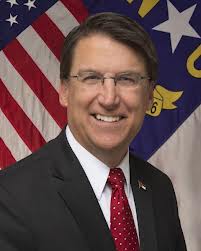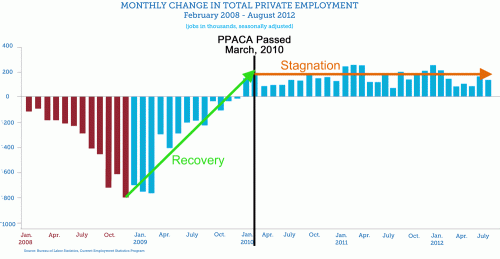
It’s simple, really. When there is an incentive to save money, there should be no surprise that incentives will drive behavior. Consider Community College of Allegheny County:
To Community College of Allegheny County’s president, Alex Johnson, cutting hours for some 400 temporary part-time workers to avoid providing health insurance coverage for them under the impending Affordable Health Care Act is purely a cost-saving measure at a time the college faces a funding reduction.
But to some of the employees affected, including 200 adjunct faculty members, the decision smacks of an attempt to circumvent the national health care legislation that goes into effect in January 2014.
“It’s kind of a double whammy for us because we are facing a legal requirement [under the new law] to get health care and if the college is reducing our hours, we don’t have the money to pay for it,” said Adam Davis, an adjunct professor who has taught biology at CCAC since 2005.
Temporary part-time employees received an email notice from Mr. Johnson on Tuesday informing them that the new health care act defines full-time employees as those working 30 hours or more per week.
As a result, the college as of Dec. 31 will reduce temporary part-time employee hours to 25 per week. For adjuncts, the workload limit will be reduced from 12 to 10 credits per semester.
The decision affects only temporary part-time employees and not permanent part-time employees who already are eligible to participate in the college’s health care plan.
My hope is that the folks impacted voted for Obama; you should reap the rewards of the decisions you make.
But that’s not all:
Darden Restaurants Inc. — parent of the Red Lobster, Olive Garden and Capital Grille eateries in Colorado and elsewhere — is cutting back hours of workers at some of its locations in an apparent effort to reduce insurance costs related to the new health-care reform law.
The Orlando, Fla., Sentinel newspaper reports that the Orlando-based company (NYSE: DRI) “has stopped offering full-time schedules to many hourly workers in at least a few” of its locations.
The Sentinel quotes the company as saying it plans to limit employees at some restaurants in four unidentified markets to 28 hours a week. Darden said the move is intended “to help us address the cost implications health care reform will have on our business.”
Under the federal Affordable Care Act, the health-reform law that some call Obamacare, companies with at least 50 employees must provide health insurance, starting in 2014, to all those who work at least 30 hours a week. Those that don’t will pay a penalty.
I suspect that this will play out across America more and more. As the ramifications of electing Obama continue to see the light of day, more and more we are going to see this reaction by business. Fewer people hired, higher ratios hired as part time employees, more efforts to drive productivity by more and more automation.
It really is important to understand that there really aren’t solutions; only tradeoffs.
Want healthcare? Lose jobs. Sacrifice growth, accept higher unemployment.
If you voted for Obama, this is on you. This is what you wanted, this is what you explicitly put into motion.
We warned you.









 It creates incentives that aren’t natural. People begin to look for ways to avoid paying their taxes and people begin to look for ways to maximize their TAKE of people’s taxes. Neither system works well.
It creates incentives that aren’t natural. People begin to look for ways to avoid paying their taxes and people begin to look for ways to maximize their TAKE of people’s taxes. Neither system works well.